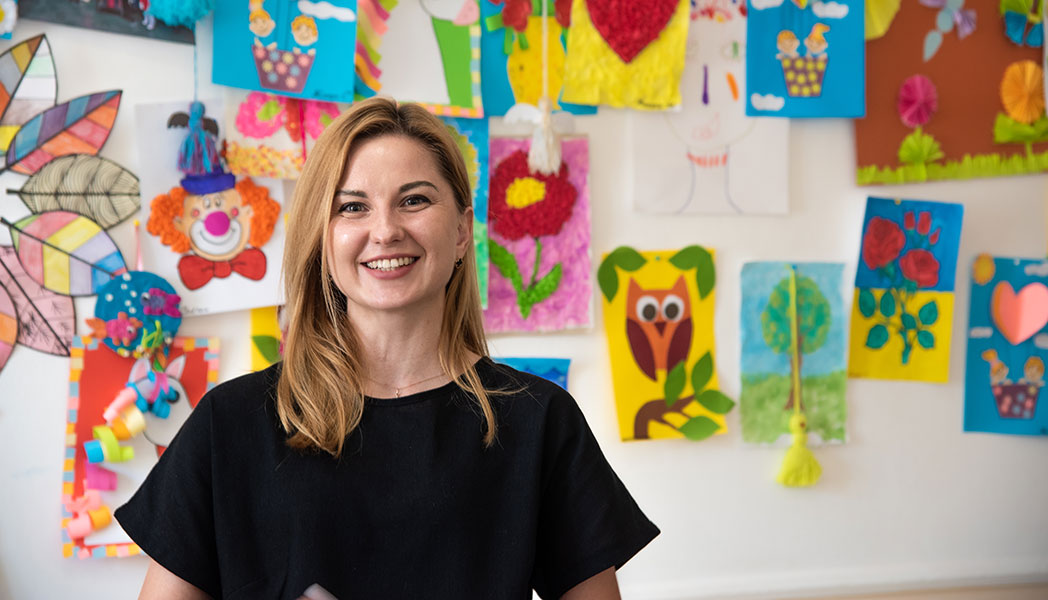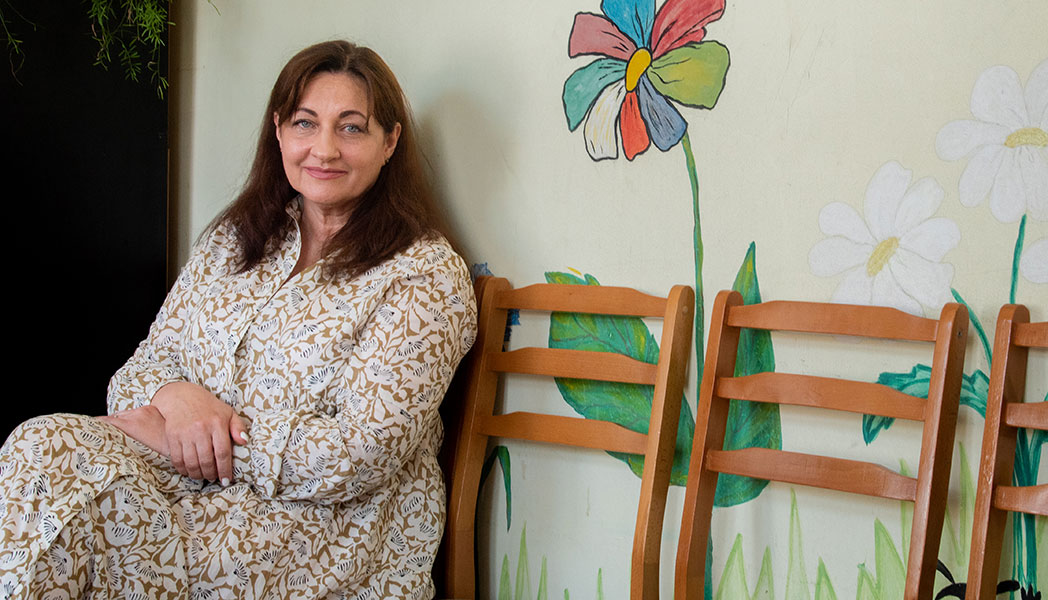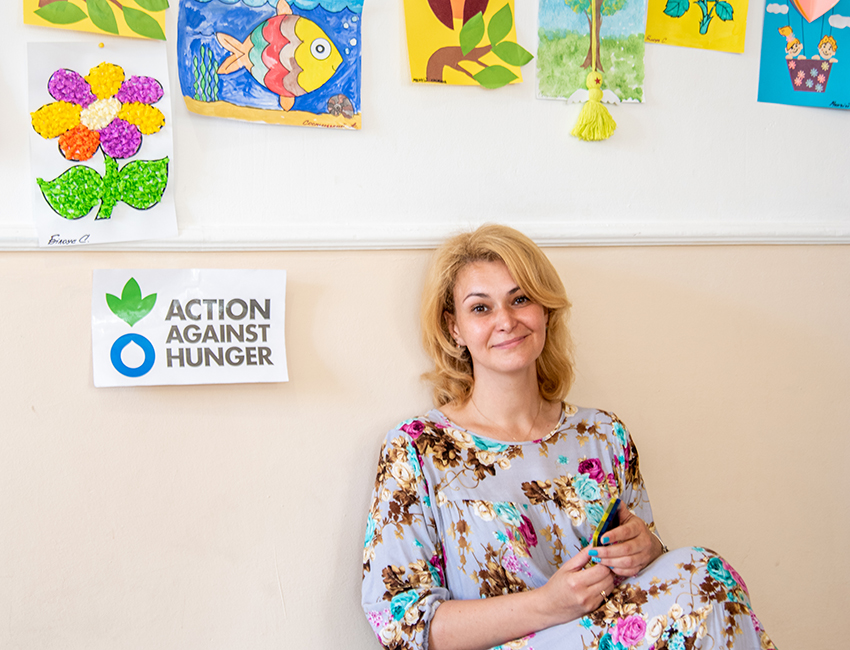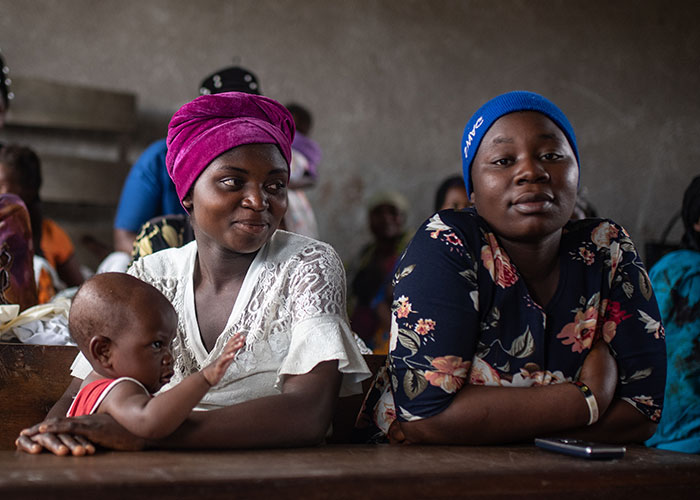How would you feel if you had to flee your home because of conflict and leave everything behind?
Afraid? Disorientated? Sad? Angry? Anxious?
These are just some of the feelings women and children describe at one of our mental health projects in Ukraine.
Here and Now is a group of psychologists in Chernivtsi, western Ukraine, supported by Action Against Hunger. They give their time and expertise to help young mothers and their children cope with the ongoing humanitarian crisis in the country. They’re mothers themselves, who before the conflict either had private practices or were professors at the local university.
Helping Ukrainian mothers with their mental health
According to the UNHCR, 7 million people have fled their homes to safer parts of Ukraine. An estimated 13 million are stranded in conflict areas or can’t leave because of security risks, the destruction of bridges and roads or a lack of information about where to find safety.
Everyone reacts differently. But sleeping disorders like insomnia and panic attacks are common.
Some mums find that the stress has affected their ability to breastfeed and produce breastmilk.
Living in cramped shelters, difficult financial situations and adjusting to a new city without the help of family and friends all just add to the pressure. For some, the war also has intensified existing relationship problems and there’s been an increase in separations.
But what many mothers fear the most is the inability to plan ahead or prepare for the winter.
“What we offer are self help techniques to regain confidence and focus on the mother’s wellbeing as this will also help their children,” explains Svitlana, one of the psychologists at Here and Now.

Svitlana, a psychologist at the Here and Now mental health project, supported by Action Against Hunger, in Chernivtsi, Ukraine. Photo credit: Action Against Hunger/ Catianne Tijerina
“A child needs to feel safe”
Children at the project have picked up the stress and pressure their parents are experiencing. Many feel disorientated after leaving their home and having to relocate to an unfamiliar place.
Almost a quarter of displaced families arriving at the project in Chernivtsi said that their main stress was travelling with young children. And World Vision’s “No Peace of Mind” report revealed 1.5 million children in Ukraine are at risk of mental health problems. So conflict has a huge impact on the mental health on children, as well as their parents.
As schools start to reopen, mums fear their children will be disappointed they can’t reunite with their friends and classmates. Or are scared how they’ll cope with the air raid sirens.
“This is a severe situation for the children,” says Alina, a psychologist. “These are years of development and the kids are showing signs of stress and trauma that are alarming.”

Alina, a psychologist at the Here and Now mental health project, supported by Action Against Hunger, in Chernivtsi, Ukraine. Photo credit: Action Against Hunger/ Catianne Tijerina
Why do Action Against Hunger run mental health projects in Ukraine?
One of the main reasons why Action Against Hunger provide mental health support in Ukraine is to prevent malnutrition.
If you’re suffering from mental health problems, you’re less likely to eat well. You’re also less likely to be able to look after yourself and those in your care.
By combining emotional and psychological support with our health and nutrition programmes in Chernivtsi, we’re seeing more positive outcomes across the board in the people we support.
There’s a direct relationship between maternal mental health and a child’s wellbeing and development. If a mother is healthy and happy, then it’s more likely their children will be too.



